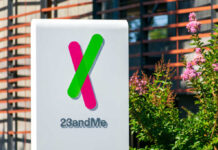
Block Inc., the parent company of Cash App, allowed terrorists and sanctioned countries to use its payment platform due to “serious compliance deficiencies” in its anti-money laundering systems.
At a Glance
- Block Inc. agreed to pay a $40 million settlement with New York State regulators over anti-money laundering failures
- The company’s systems failed to flag bitcoin transactions linked to terrorist groups until exposure exceeded 10% – a threshold that should have been zero
- Block allegedly facilitated transactions with sanctioned countries including Cuba, Iran, Russia, and Venezuela
- An independent monitor will oversee Block’s compliance for one year as part of the settlement
- The settlement doesn’t prevent further action from federal or other regulatory agencies
Major Compliance Failures at Cash App’s Parent Company
The New York State Department of Financial Services (NYDFS) has hit Block Inc. with a $40 million settlement after identifying alarming deficiencies in the company’s anti-money laundering systems. These failures, which occurred between early 2021 and September 2022 with additional issues in 2023, created a dangerous environment where terrorist financing and sanctions violations could flourish. The settlement highlights the growing concern about cryptocurrency platforms being used for illicit financial activities and raises serious questions about Block’s commitment to financial security.
Block’s compliance failures were not minor oversights but fundamental flaws in their security infrastructure. According to regulators, the company’s systems wouldn’t flag suspicious Bitcoin transactions linked to terrorism-connected wallets until exposure exceeded an alarming 10% threshold. This is particularly troubling since any exposure to terrorist financing is strictly prohibited under federal law. Former employees reportedly warned management about these issues, but their concerns were allegedly ignored as the company continued processing questionable transactions.
ICYMI: Superintendent Harris announced today that Block, Inc. will pay a $40 million penalty for significant failures in its Bank Secrecy Act/Anti-Money Laundering compliance program.
Details on the DFS investigation & settlement: https://t.co/P5VR9L7gQb https://t.co/gb6HvXXRJS— NYDFS (@NYDFS) April 10, 2025
Sanctions Violations and Regulatory Response
The investigation revealed that Square, Block’s subsidiary, facilitated transactions with countries under U.S. economic sanctions including Cuba, Iran, Russia, and Venezuela. This represents a serious breach of federal regulations designed to protect national security interests. While Block has agreed to the settlement terms, it’s worth noting that the company has not admitted liability – a common legal strategy that allows businesses to resolve regulatory issues while minimizing potential fallout from civil litigation that might follow.
In their public statements, Block has expressed satisfaction with resolving the matter and pledged their commitment to improving compliance systems. However, their failure to acknowledge wrongdoing raises questions about whether the company truly understands the severity of these violations. The $40 million penalty, while substantial, may ultimately be viewed as just a cost of doing business for a company valued in the billions – highlighting once again how financial penalties often fail to create meaningful accountability for large corporations.
Block, the parent company of Cash App and Square, will pay a $40 million settlement with the New York State Department of Financial Services, which alleged the fintech company failed to maintain effective anti-money-laundering programs https://t.co/0hQz4SVpC4
— The Wall Street Journal (@WSJ) April 10, 2025
Ongoing Monitoring and Future Implications
As part of the settlement agreement, Block will install an independent monitor for one year to evaluate and improve its anti-money laundering and sanctions compliance programs. This outside oversight provides some assurance that the company will address its systemic issues, but the limited one-year timeframe may be insufficient for truly transforming corporate culture around compliance matters. More concerning for Block investors and users is that this settlement doesn’t prevent further action from federal agencies like FinCEN or OFAC, which could impose additional penalties.
This case exemplifies the growing pains of the cryptocurrency and digital payment industry as it faces increasing regulatory scrutiny. For conservative investors, it serves as a stark reminder that innovative financial technologies often race ahead of proper compliance infrastructure, creating significant regulatory and reputational risks. As government agencies continue to close the regulatory gap around cryptocurrency, companies with lax compliance practices will increasingly find themselves facing costly consequences for cutting corners on anti-money laundering measures.






















